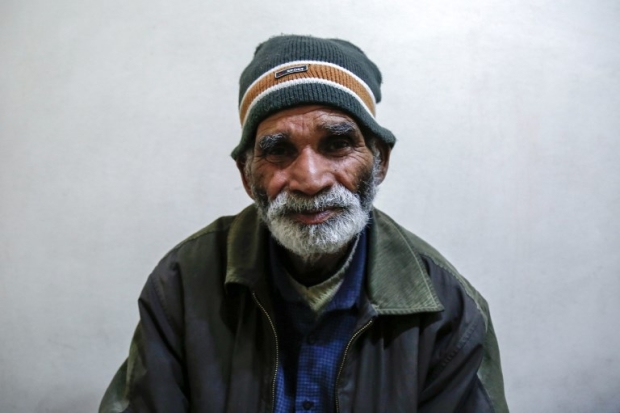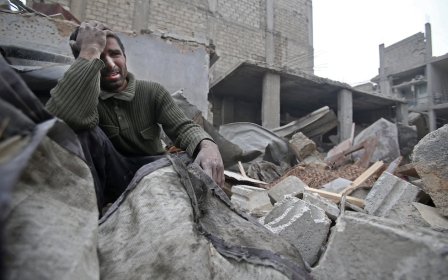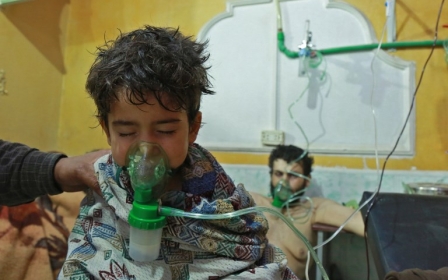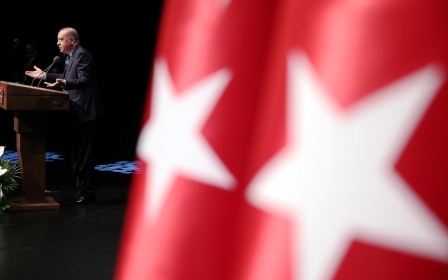Civilians stay put despite 'pause' in Syria Ghouta bloodshed
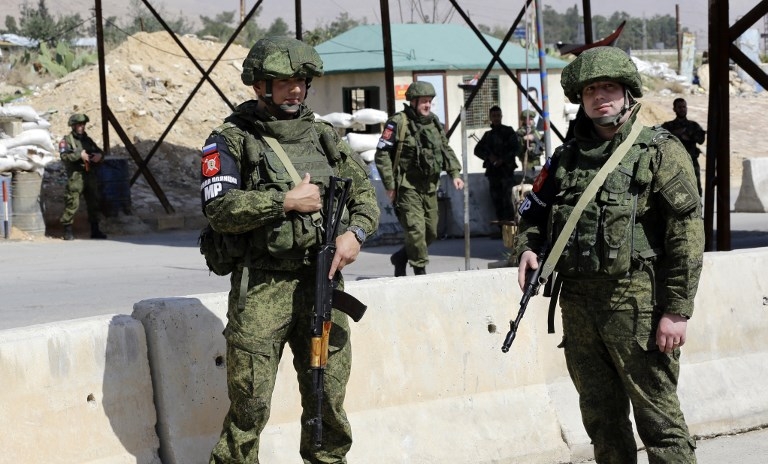
Civilians in Syria's Eastern Ghouta have continued to shun Russia's offer to quit the besieged enclave, as rebels and Moscow blame each other for the humanitarian deadlock.
The air strikes and clashes that killed 600 civilians in 10 days have reduced since the Kremlin announced five-hour halts in the bombardment.
But just two of the battered region's 400,000 residents - an elderly Pakistani couple - were reported to have left by late Wednesday as government-provided buses stood empty.
AFP reporters saw no movement at the Wafideen checkpoint through which would-be evacuees were told to exit the Eastern Ghouta enclave that the government lost in 2012 and has besieged almost ever since.
"The humanitarian corridor is open to all those who wish to return to the fold of the homeland, but so far nobody came and this is the second day," said a military officer at the checkpoint.
AFP reported on Thursday that a Pakistani man and his wife had been evacuated on Wednesday, citing Red Crescent officials, but the Syrian Observatory for Human Rights (SOHR) said their departure from the area had followed months of negotiations by the Pakistani embassy.
Mohammad Fadhl Akram, 73, and Saghran Bibi, who have lived in Syria since 1974, were evacuated to Damascus, AFP reported.
But they had to leave his two sons, three daughters and 12 grandchildren behind, he told AFP in the Eastern Ghouta town of Douma before leaving.
"I hope God protects them," said Akram. "I don't want anything else."
The move fell far short of a full ceasefire voted for by the United Nations Security Council - but was still welcomed inside Eastern Ghouta for offering some respite from one of the bloodiest assaults in Syria's seven-year-old war.
The truce was meant to last three days. It could be extended but why go on if there are no results
- Syrian military officer
Despite the step, the UN insisted that all sides must implement the 30-day truce demanded on Saturday, and said some 40 trucks loaded with aid were waiting for the violence to stop.
Moscow's "humanitarian pause" echoes a similar tactic employed by Russia and the Syrian government as they looked to force rebels out of Aleppo, Syria's second largest city, during a ferocious battle in 2016.
No casualties were reported by the time Wednesday's window closed at 2pm - but warplanes were back in the sky moments later.
"During the truce, the ceasefire is almost enforced," said Syrian Observatory for Human Rights (SOHR) head Rami Abdel Rahman, adding that nine civilians were killed in strikes before and after on Wednesday.
The first five-hour "pause" on Tuesday passed with two killed in government bombardment, according to the UK-based war monitor.
Three days only?
The Syrian government has accused the rebel groups inside Eastern Ghouta of sabotaging the initiative by shelling the designated humanitarian corridors with the intention of holding civilians as human shields.
"The terrorists are impeding those who want to cross, either by putting pressure on them or by firing on the humanitarian corridors," the military officer said, speaking on condition of anonymity.
The officer at Wafideen checkpoint warned that if Thursday was equally fruitless then the measure may be dropped, raising fears that the kind of bombardments that have killed dozens of civilians every day this month would resume."The truce was meant to last three days. It could be extended but why go on if there are no results," he said.
Inside Eastern Ghouta, the residents AFP spoke to were distrustful of a measure put in place by Russia, whose warplanes rained munitions on them alongside Syrian aircraft.
The three main armed groups inside the territory, which lies within mortar range of Damascus, said they wanted more international guarantees.
In a letter sent to the United Nations on Tuesday, they said they were willing to expel the militants factions that have a presence in Eastern Ghouta. But they also demanded that any evacuations be conducted under the supervision of a UN mechanism.
Russian President Vladimir Putin blamed the crisis on the rebels' "constant shelling" and added: "Shells even crash into the grounds of the Russian embassy and the economic mission. Should we continue to tolerate this? Of course not," he said.
Russian Foreign Minister Sergei Lavrov said it was up to the rebels "to act" to ensure the brief halts in fighting bring relief for civilians.
Aid trucks waiting
At a Security Council meeting UN humanitarian chief Mark Lowcock demanded that the ceasefire deal agreed at the weekend go into force to allow aid to enter.
"When will your resolution be implemented?" he asked.
Lowcock said trucks loaded with supplies have been poised to go to 10 locations since Saturday - but there has been no access for humanitarian convoys, nor authorisation by the Syrian government to go into the besieged areas.
US representative Kelley Currie accused the government of violating the ceasefire, while Russian ambassador Vassily Nebenzia blamed the rebels.
Jeffrey Feltman, UN under secretary-general for political affairs, expressed frustration at the council's inaction and called for the resolution to be implemented, saying "that is not happening".
Meanwhile the Syrian government continued to push for territory on the fringes of the besieged enclave.
The SOHR said government forces had made limited advances in Ghouta's Shaifuniyeh and Hosh al-Zawahira districts.
Abdel Rahman said 38 government and allied fighters were killed in three days of fighting in the Al-Marj area on the southern edge of the enclave.
At least 18 fighters from Jaish al-Islam, Eastern Ghouta's dominant anti-government faction, were also killed, Abdel Rahman said.
New MEE newsletter: Jerusalem Dispatch
Sign up to get the latest insights and analysis on Israel-Palestine, alongside Turkey Unpacked and other MEE newsletters
Middle East Eye delivers independent and unrivalled coverage and analysis of the Middle East, North Africa and beyond. To learn more about republishing this content and the associated fees, please fill out this form. More about MEE can be found here.


